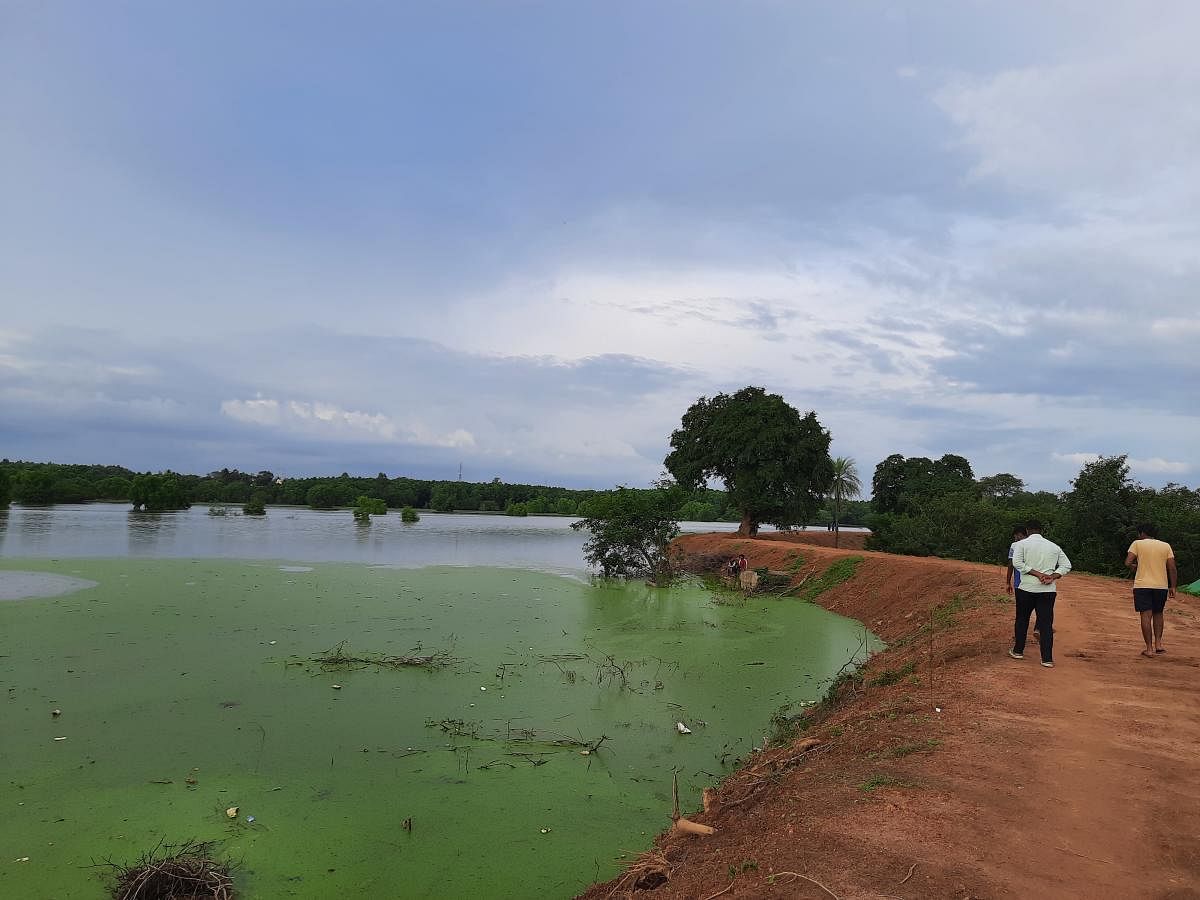

I decided to usher in the New Year watching birds. As day broke, I was on the bund of the lake within walking distance from my home in Doddagubbi village on the outskirts of Bengaluru city.
For the first time in thirty years, this 105 acre lake has filled up to the brim.
I moved to Doddagubbi ten years ago and have been visiting the lake for birding occasionally but have never seen it as resplendent as this year.
Doddagubbi lake has been popular as a birding spot ever since the renowned conservationist Zafar Futehally took up residence here fifty years ago. Birders from Bengaluru used to congregate here Sunday to observe the birds.
Since 1992, the lake has figured in the Asian Waterfowl Count. The details have even been carried by The Newsletter for Birdwatchers, published from Bangalore.
Looking through my binoculars, the swarm of birds at the other end of the lake resolved into so many shovellers, pintails and common teals, all migratory birds. I could also see spotbill ducks and whistling teals, which are residents.
In fact, I have seen the spotbills in the lake throughout the year. There were coots and dabchicks too.
Overhead, I could see a Montague’s harrier, a winter visitor. Our own Brahminy kite, a once familiar bird that is getting rare due to pesticides, was also in the air. There were cormorants and darters.
Grey herons and a lone purple heron could be spotted. On the tree jutting out of the water were three varieties of egrets.
In all, it was a glorious morning and I had logged thirty-one species. I came home and promptly uploaded my sightings in eBird, an online portal which connects birdwatchers the world over.
The lake has been sustaining the village over the years. A granite sluice shows that it has been irrigating the paddy fields around. All around the lake there are houses, including some apartment complexes, with new ones coming up.
The lake will be replenishing the ground water on which people in this area depend now. S C Jayakaran, a hydrogeologist, settled in the village after retirement, points out that through percolation the lake will benefit the surrounding borewells in the radius of one km.
When the lake is full, the water table is restocked.
Of all the landscape features, a lake, particularly those close to cities, is often appropriated for land use. As houses come up, a lake just disappears.
And though Doddagubbi is a panchayat, it is still covered under the city administration when it comes to postal and police services.
Fortunately, Doddagubbi Lake has been tightly fenced all around and subabul trees have been planted along the fence. So the geographical area of the lake, hopefully will be intact.
And hopefully, no civil works will be added. It is too precious a heritage to be meddled with.
(The author is a former trustee of WWF India)